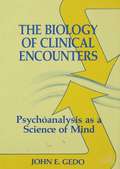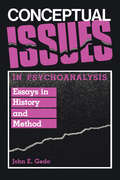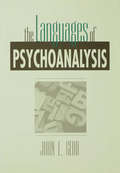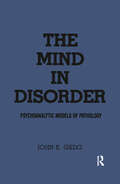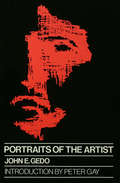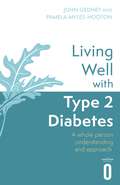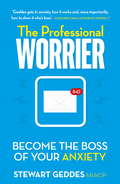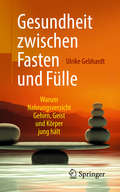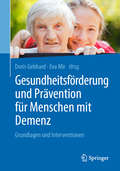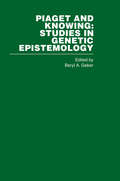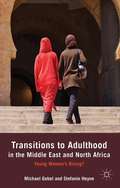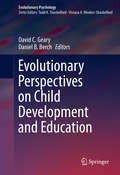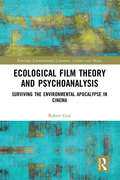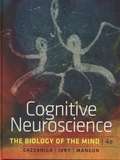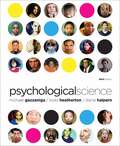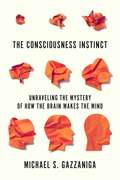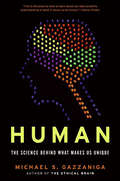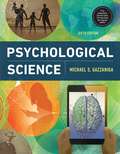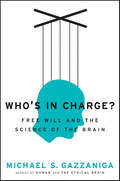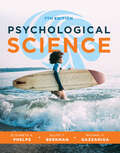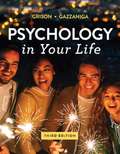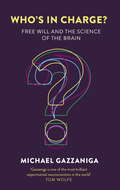- Table View
- List View
The Biology of Clinical Encounters: Psychoanalysis as a Science of Mind
by John E. GedoIn The Biology of Clinical Encounters, Gedo utilizes recent findings in neuroscience and cognitive psychology to elaborate his conception of psychobiology and to consider its implications in clinical analysis. He pursues this challenging undertaking in several directions. He illuminates the way in which psychobiology enters into his hierarchical model of mental functioning, and goes on to examine three clinical syndromes - phobias, obsessions, and affective disturbances - in which biological considerations are particularly important. Of special note are chapters examining the implications of a biological approach for clinical psychoanalysis. Gedo explores the notion of transference that grows out of attentiveness to psychobiological factors, elaborates the concept of therapeutics that follows from looking beyond mental contents, and discusses the problem of assessing clinical evidence produced by analyses informed by a psychobiological orientation. Drawing on his own analytic work of over three decades, he compares analyses conducted with a psychobiological orientation with the outcome of analyses conducted earlier in his career with a more traditional psychological approach. A stimulating introduction to the interpenetration of the biological and the psychological in clinical work, The Biology of Clinical Encounters is quintessential Gedo: scholarly in conception, elegant in tone, provocative in import, and illuminating, always, of fundamental issues about the status of psychoanalysis as a science of mind.
Conceptual Issues in Psychoanalysis: Essays in History and Method
by John E. GedoIn Conceptual Issues in Psychoanalysis, John Gedo's mastery of Freudian theory and broad historical consciousness subserve a new goal: an understanding of "dissidence" in psychoanalysis. Gedo launches his inquiry by reflecting expansively on recent assessments of Freud's character. His acute remarks on the intellectual and personal agendas that inform the portraits of Freud offered by Frank Sulloway, Jeffrey Masson, and Peter Swales pave the way for his own definition of psychoanalysis in historical context. Then, in topical studies on Sandor Ferenczi, Melanie Klein, and Heinz Kohut, he explicates the commonalities that bind together three generations of dissidents, each of whom undertook to supplant the edifice of hypotheses erected by Freud with alternative theories. Interspersed with these essays are quite insightful studies of Lou Andreas-Salome and David Rapaport, whom Gedo sees as "epistemological referees" attempting to reconcile viewpoints unique to their generations. In the second part of the book, Gedo argue that analysis now has the opportunity to move beyond this pattern of dissidence followed by mediation by drawing on observational research about infancy and early childhood to validate or refute its clinical hypotheses. In these chapters, Gedo offers critical commentary on recent efforts to extrapolate from infant research to the psychoanalytic theory of development. Only then does he offer his own measured estimation of the "legacy of infancy and the technique of psychoanalysis." This review of "the challenge of scientific method" as it bears on analysis culminates in concluding chapters that probe the status of analysis as a hermeneutic discipline and the contribution of analysis to "vocabularies of moral deliberation."
The Languages of Psychoanalysis
by John E. GedoIn this remarkable survey of "the communicative repertory of humans," John Gedo demonstrates the central importance to theory and therapeutics of the communication of information. He begins by surveying those modes of communication encountered in psychoanalysis that go beyond the lexical meaning of verbal dialogue, including "the music of speech," various protolinguistic phenomena, and the language of the body. Then, turning to the analytic dialogue, Gedo explores the implications of these alternative modes of communication for psychoanalytic technique. Individual chapters focus, in turn, on the creation of a "shared language" between analyst and analysand, the consequences of the analytic setting, the form in which the analyst casts particular interventions, the curative limits of empathy, the analyst's affectivity and its communication to the patient, and the semiotic significance of countertransference and projective identification. Gedo does not proffer semiotics as a substitute for metapsychology. He is explicit that communicative skill is always dependdent on somatic events within the central nervous system. Indeed, it is because Gedo's hierarchical approach to communication builds on our current understanding of a hierarchically organized central nervous system that his clincal observations become insights into basic psychobiological functioning. Grounded in Gedo's four decades of clinical experience, The Languages of Psychoanalysis points to a new venue of clinical research and conceptualization, one in which attentiveness to issues of communication will not only foster linkages with contemporary neuroscience, but also clarify and enlarge the therapeutic possibilities of psychoanalytic treatment.
The Mind in Disorder: Psychoanalytic Models of Pathology
by John E. GedoAnchoring his schema in the belief that nonorganic disorders are disturbances in adaptation explicable within a depth-psychological framework, Gedo posits two broad categories of functional disorder: "apraxias" that represent any failure to learn adaptively essential skills, and disorders of what her terms "obligatory repetition." Within both categories of disorder, Gedo avers, the vicissitudes of mental functioning are understandable in terms of regression to relatively archaic modes of function and the reversal of regression and return to expectable modes of adult function. It follwos from Gedo's understanding of how and why the mind becomes disordered, that diagnosis utilizing psychoanalytic principles can only be based on the succession of transference constellations encountered in treatment, since these constellations invariably pinpoint the developmental impasses in which maladaptive repetitive patterns and the failure to learn basic psychological skills are rooted. For purposes of understanding a variety of apraxic and repetitive disorders, Gedo equates such basic skills not only with the three major psychobiological attainments he has invoked in the past, but with the development of adequate perception, cognition, affectivity, and communication skills. Beautifullu organized, lucidly written, and richly illustrated with case vignettes, The Mind in Disorder is not only the thoughtful yield of an outstanding clinician's three decades of experience. It is also the first psychoanalytic book since Otto Fenichel's masterwork of 1945, The Psychoanalytic Theory of Neurosis, to take the issue of how we conceptualize psychopathology as its central focus.
Portraits of the Artist: Psychoanalysis of Creativity and its Vicissitudes
by John E. GedoGedo's pathbreaking exploration of the psychology of creativity incorporates first-hand material drawn from his extensive clinical work with artists, musicians, and other exceptionally creative individuals. Using this body of clinical knowledge as conceptual anchorage, he then offers illuminating reassessments of the artistic productivity of van Gogh, Picasso, Gauguin, and Caravaggio, and the literary productivity of Nietzsche, Jung, and Freud.
Living Well with Type 2 Diabetes: A Whole Person Understanding and Approach (Living Well)
by Dr John Gedney Pamela Myles-HootonA practical, self-help guide for living well with Type 2 Diabetes (T2D) In the last forty years, we have seen an astounding rise in the prevalence of T2D in most countries. There are thought to be close to half a billion people affected worldwide. Traditionally thought of as a disease of mid-life and old age, both T2D and the metabolic markers of future disease are now increasingly being seen in young people, children and even infants. The burden of this disease is huge at all levels − for healthcare spend and for added risk of other medical problems. Other than its physical impacts, more than a third of people with T2D are said to experience psychological problems related specifically to the condition. We are now at a crossroads in understanding the science behind T2D with a more focused approach emerging. Research and practice are challenging the traditional way in which we approach and manage T2D − as well as better understanding how to prevent it altogether. By following the advice in this book, you will: · Better understand and be empowered to control your metabolic health · Learn how to prevent, reverse, or improve, and better manage your T2D Living Well self-help guides use clinically proven techniques to treat long-standing and disabling conditions, both psychological and physical.
Living Well with Type 2 Diabetes: A Whole Person Understanding and Approach (Living Well)
by Dr John Gedney Pamela Myles-HootonA practical, self-help guide for living well with Type 2 Diabetes (T2D) In the last forty years, we have seen an astounding rise in the prevalence of T2D in most countries. There are thought to be close to half a billion people affected worldwide. Traditionally thought of as a disease of mid-life and old age, both T2D and the metabolic markers of future disease are now increasingly being seen in young people, children and even infants. The burden of this disease is huge at all levels − for healthcare spend and for added risk of other medical problems. Other than its physical impacts, more than a third of people with T2D are said to experience psychological problems related specifically to the condition. We are now at a crossroads in understanding the science behind T2D with a more focused approach emerging. Research and practice are challenging the traditional way in which we approach and manage T2D − as well as better understanding how to prevent it altogether. By following the advice in this book, you will: · Better understand and be empowered to control your metabolic health · Learn how to prevent, reverse, or improve, and better manage your T2D Living Well self-help guides use clinically proven techniques to treat long-standing and disabling conditions, both psychological and physical.
The Professional Worrier: Become the Boss of Your Anxiety
by Stewart Geddes'Geddes gets it: anxiety, how it works and, more importantly, how to show it who's boss' Caroline Foran, author of Owning ItWorry and anxiety can damage our careers and relationships, can hold us back from exploring new opportunities, and is detrimental to our concentration, mood and self-esteem. And during times when we feel overwhelmed, we doubt ourselves and our ability to cope.In The Professional Worrier, counsellor, psychotherapist and self-confessed worrier Stewart Geddes examines how creating greater awareness around anxiety can change the way you deal with everyday stresses at work and at home.From anxiety about relationships to panic about an ever-growing to-do list, fear of making the wrong decision, or the pressure of producing perfect work, The Professional Worrier offers practical guidance to help you take control of your worry every day - so it doesn't control you - and build the trust in yourself to tackle anything that comes your way.
The Professional Worrier: Become the Boss of Your Anxiety
by Stewart Geddes'Geddes gets it: anxiety, how it works and, more importantly, how to show it who's boss' Caroline Foran, author of Owning ItWorry and anxiety can damage our careers and relationships, can hold us back from exploring new opportunities, and is detrimental to our concentration, mood and self-esteem. And during times when we feel overwhelmed, we doubt ourselves and our ability to cope.In The Professional Worrier, counsellor, psychotherapist and self-confessed worrier Stewart Geddes examines how creating greater awareness around anxiety can change the way you deal with everyday stresses at work and at home.From anxiety about relationships to panic about an ever-growing to-do list, fear of making the wrong decision, or the pressure of producing perfect work, The Professional Worrier offers practical guidance to help you take control of your worry every day - so it doesn't control you - and build the trust in yourself to tackle anything that comes your way.
Millionaire
by Jolanta GebkaThis book is about the life events of given people (the heroine of the novel). This book is about the life events of given people (the heroine of the novel). She won the main lottery. The story was shown in the magic of the film. The book is morale. She won the main lottery. The story was shown in the magic of the film.
Gesundheit zwischen Fasten und Fülle: Warum Nahrungsverzicht Gehirn, Geist und Körper jung hält
by Ulrike GebhardtIn diesem Buch erfahren interessierte Laien, wie sie durch eine leicht veränderte Ernährungsweise nicht nur dem Körper, sondern auch Gehirn und Geist Gutes tun können. Mediziner raten dazu, hin und wieder auf Nahrung zu verzichten – und das nicht nur in der Fastenzeit. Aber warum soll eine Kalorienreduktion gesund sein? Tatsächlich mehren sich die Hinweise darauf, dass Fasten auch dem Gehirn und der Psyche gut tut: Der Sparstoffwechsel wirkt wie ein Antidepressivum und kurbelt das neuronale Recycling an. Die Enthaltsamkeit beim Essen könnte sogar Demenz vorbeugen. Aus dem Inhalt: Überfluss – Verzicht – Leben im Wechsel zwischen Fülle und Verzicht. Über die Autorin: Dr. Ulrike Gebhardt ist promovierte Biologin und Wissenschaftsjournalistin. Sie schreibt mit Begeisterung über Themen aus den Bereichen Biowissenschaften und Medizin. Bei der Beschäftigung mit dem Thema Fasten hat sie beschlossen, wieder ein längeres Übernacht-Fasten einzulegen.
Gesundheitsförderung und Prävention für Menschen mit Demenz: Grundlagen und Interventionen
by Doris Gebhard Eva MirWelche Gesundheitsressourcen haben Menschen mit Demenz und wie können diese gezielt gefördert werden? Dieses Buch bietet erstmalig einen multiprofessionellen Einblick in die Beantwortung dieser Fragestellung. Experten aus dem deutschsprachigen Raum präsentieren und diskutieren neben zielgruppenspezifischen theoretischen Grundlagen die aktuelle Interventionslandschaft. Dabei wird eindrucksvoll aufgezeigt, wie beispielsweise Bewegung, Sexualität oder Humor zur Aktivierung von Gesundheitspotentialen beitragen können. Das Buch bietet neben praktischen Beispielen auch eine kritische Auseinandersetzung mit der Evidenzlage und Methoden der Evaluation von gesundheitsfördernden und präventiven Maßnahmen für Menschen mit Demenz. Darüber hinaus werden Handlungsempfehlungen für Wissenschaft und Praxis formuliert, die dazu ermutigen und befähigen, mehr Gesundheit, Freude und Lebensqualität in die Alltagswelt von Menschen mit Demenz zu bringen. Das Buch richtet sich an Pflegepersonen, Altenbetreuer, Praktiker aus dem Bereich der Gesundheitsförderung, Ärzte, Psychologen, Ergotherapeuten, Physiotherapeuten und andere Gesundheitsberufe sowie Angehörige.
Transitions to Adulthood in the Middle East and North Africa
by Michael Gebel Stefanie HeyneThis book identifies chances and barriers women face in their transition to adulthood in Egypt, Iran, Jordan, and Syria. Adopting a life course perspective, it provides a new integrative micro-macro-theoretical framework and innovative analyses of individual life courses based on longitudinal data.
Evolutionary Perspectives on Child Development and Education
by David C. Geary Daniel B. BerchThis stimulating volume assembles leading scholars to address issuesin children's cognitive, academic, and social development through the lens ofevolutionary psychology. Debates and controversies in the field highlight thepotential value of this understanding, from basic early learning skills throughemerging social relationships in adolescence, with implications for academicoutcomes, curriculum development, and education policy. Children's evolvedtendency toward play and exploration fuels an extended discussion on child-versus adult-directed learning, evolutionary bases are examined for younglearners' moral development, and contemporary theories of learning and memoryare viewed from an evolutionary perspective. Alongthe way, contributors' recommendations illustrate real-world uses of evolution-basedlearning interventions during key developmental years. Among the topics covered: The adaptive value of cognitive immaturity:applications of evolutionary developmental psychology to early education Guidedplay: a solution to the play versus learning dichotomy Adolescent bullying in schools: anevolutionary perspective Fairness:what it isn't, what it is, and what it might be for Adaptingevolution education to a warming climate of teaching and learning The effects of an evolution-informed school environmenton student performance and wellbeing Evolutionary Perspectives on Child Development andEducation will interest researchers andgraduate students working in diverse areas such as evolutionary psychology,cultural anthropology, human ecology, developmental psychology, and educationalpsychology. Researchers in applied developmental science and early educationwill also find it useful.
Ecological Film Theory and Psychoanalysis: Surviving the Environmental Apocalypse in Cinema (Routledge Environmental Literature, Culture and Media)
by Robert GealThis book applies ecolinguistics and psychoanalysis to explore how films fictionalising environmental disasters provide spectacular warnings against the dangers of environmental apocalypse, while highlighting that even these apparently environmentally friendly films can still facilitate problematic real-world changes in how people treat the environment. Ecological Film Theory and Psychoanalysis argues that these films exploit cinema’s inherent Cartesian grammar to construct texts in which not only small groups of protagonist survivors, but also vicarious spectators, pleasurably transcend the fictionalised destruction. The ideological nature of the ‘lifeboats’ on which these survivors escape, moreover, is accompanied by additional elements that constitute contemporary Cartesian subjectivity, such as class and gender binaries, restored nuclear families, individual as opposed to social responsibilities for disasters, and so on. The book conducts extensive analyses of these processes, before considering alternative forms of filmmaking that might avoid the dangers of this existing form of storytelling. The book’s new ecosophy and film theory establishes that Cartesian subjectivity is an environmentally destructive ‘symptom’ that everyday linguistic activities like watching films reinforce. This book will be of great interest to students and scholars of film studies, literary studies (specifically ecocriticism), cultural studies, ecolinguistics, and ecosophy.
Cognitive Neuroscience: The Biology of the Mind Fourth Edition
by Michael S. Gazzaniga Richard B. Ivry George R. MangunThe first textbook for the course, and still the market leader, Cognitive Neuroscience has been thoroughly refreshed, rethought, and reorganized to enhance students' and instructors' experience. The table of contents and the chapters themselves have been reorganized to improve the logical flow of the narrative, and the world renowned author team has kept the book fully up to date on the latest research in this fast moving field.
Psychological Science (3rd Edition)
by Michael S. Gazzaniga Todd F. Heatherton Diane F. HalpernThis edition presents the latest developments in psychology in an engaging, visually stimulating format. The text enhances student understanding and stimulates active learning with Halpern's unique science-of-learning pedagogical system; relevant, real world examples; and an art program tailored especially for visual learners. Instructors and students will benefit from the most integrated media package available for an introductory course.
The Consciousness Instinct: Unraveling the Mystery of How the Brain Makes the Mind
by Michael S. Gazzaniga“The father of cognitive neuroscience” illuminates the past, present, and future of the mind-brain problemHow do neurons turn into minds? How does physical “stuff”—atoms, molecules, chemicals, and cells—create the vivid and various worlds inside our heads? The problem of consciousness has gnawed at us for millennia. In the last century there have been massive breakthroughs that have rewritten the science of the brain, and yet the puzzles faced by the ancient Greeks are still present. In The Consciousness Instinct, the neuroscience pioneer Michael S. Gazzaniga puts the latest research in conversation with the history of human thinking about the mind, giving a big-picture view of what science has revealed about consciousness.The idea of the brain as a machine, first proposed centuries ago, has led to assumptions about the relationship between mind and brain that dog scientists and philosophers to this day. Gazzaniga asserts that this model has it backward—brains make machines, but they cannot be reduced to one. New research suggests the brain is actually a confederation of independent modules working together. Understanding how consciousness could emanate from such an organization will help define the future of brain science and artificial intelligence, and close the gap between brain and mind.Captivating and accessible, with insights drawn from a lifetime at the forefront of the field, The Consciousness Instinct sets the course for the neuroscience of tomorrow.
Human: The Science Behind What Makes Your Brain Unique
by Michael S. GazzanigaWhat happened along the evolutionary trail that made humans so unique? In his accessible style, Michael Gazzaniga pinpoints the change that made us thinking, sentient humans different from our predecessors. He explores what makes human brains special, the importance of language and art in defining the human condition, the nature of human consciousness, and even artificial intelligence.
Psychological Science
by Michael S. GazzanigaDrawing on teaching and learning research, the Sixth Edition provides new tools to improve students’ reading, focus, and self-assessment. Chapters are now divided into brief “study units,” each of which concludes with a self-test question to increase comprehension. NEW “Putting Psychology to Work” features show students how to apply psychology concepts to future careers. Our formative, adaptive learning tool, InQuizitive, and our online psychology labs, ZAPS 2.0, provide a hands-on approach to assessing students’ understanding.
Who's in Charge?: Free Will and the Science of the Brain
by Michael S. Gazzaniga“Big questions are Gazzaniga’s stock in trade.”—New York Times“Gazzaniga is one of the most brilliant experimental neuroscientists in the world.”—Tom Wolfe“Gazzaniga stands as a giant among neuroscientists, for both the quality of his research and his ability to communicate it to a general public with infectious enthusiasm.”—Robert Bazell, Chief Science Correspondent, NBC News The author of Human, Michael S. Gazzaniga has been called the “father of cognitive neuroscience.” In his remarkable book, Who’s in Charge?, he makes a powerful and provocative argument that counters the common wisdom that our lives are wholly determined by physical processes we cannot control. His well-reasoned case against the idea that we live in a “determined” world is fascinating and liberating, solidifying his place among the likes of Oliver Sacks, Antonio Damasio, V.S. Ramachandran, and other bestselling science authors exploring the mysteries of the human brain.
Psychological Science (Seventh Edition)
by Michael Gazzaniga Elizabeth A. Phelps Elliot BerkmanNew authors bring a winning combination of cutting-edge research and real-world impact W. W. Norton is excited to announce that award-winning authors Elizabeth Phelps and Elliot Berkman will bring their ideas and energy to Psychological Science 7e. Our authors are committed to encouraging students to learn and evaluate psychology through the lens of methods, replication, and the open science era. Looking beyond the text, Liz and Elliot applied their experience with the introductory psychology course to all aspects of the teaching and learning tools, including InQuizitive’s adaptive assessment, new ZAPS 3.0 interactive labs with instructor support, a hands-on approach to visualizing brain science through a new interactive 3D brain, and exciting new interactive neuron animations. They are committed to introducing students to a more modern view of the field—one that shows the real-world impact of psychology and showcases the work of diverse researchers throughout. This purchase offers access to the digital ebook only.
Psychology In Your Life
by Michael Gazzaniga Sarah GrisonAuthor Sarah Grison--an expert in the teaching of introductory psychology--has created a print and digital package with an equal commitment to the success of every instructor and student. A strong, author-driven support package--rich with original media, a test bank, Active Learning slides, and InQuizitive adaptive learning modules--provides instructors with everything they need to help today's students understand and apply introductory psychology.
Who's in Charge?: Free Will and the Science of the Brain
by Michael GazzanigaThe prevailing orthodoxy in brain science is that since physical laws govern our physical brains, physical laws therefore govern our behaviour and even our conscious selves. Free will is meaningless, goes the mantra; we live in a 'determined' world.Not so, argues the renowned neuroscientist Michael S. Gazzaniga as he explains how the mind, 'constrains' the brain just as cars are constrained by the traffic they create. Writing with what Steven Pinker has called 'his trademark wit and lack of pretension,' Gazzaniga ranges across neuroscience, psychology and ethics to show how incorrect it is to blame our brains for our behaviour. Even given the latest insights into the physical mechanisms of the mind, he explains, we are responsible agents who should be held accountable for our actions, because responsibility is found in how people interact, not in brains.An extraordinary book, combining a light touch with profound implications, Who's in Charge? is a lasting contribution from one of the leading thinkers of our time.
